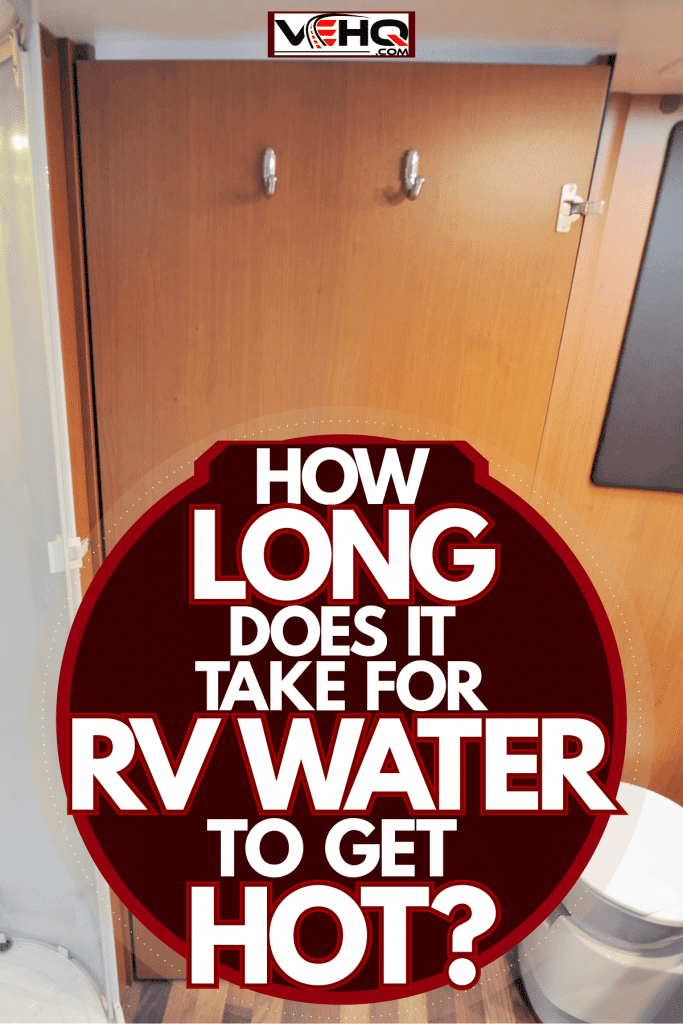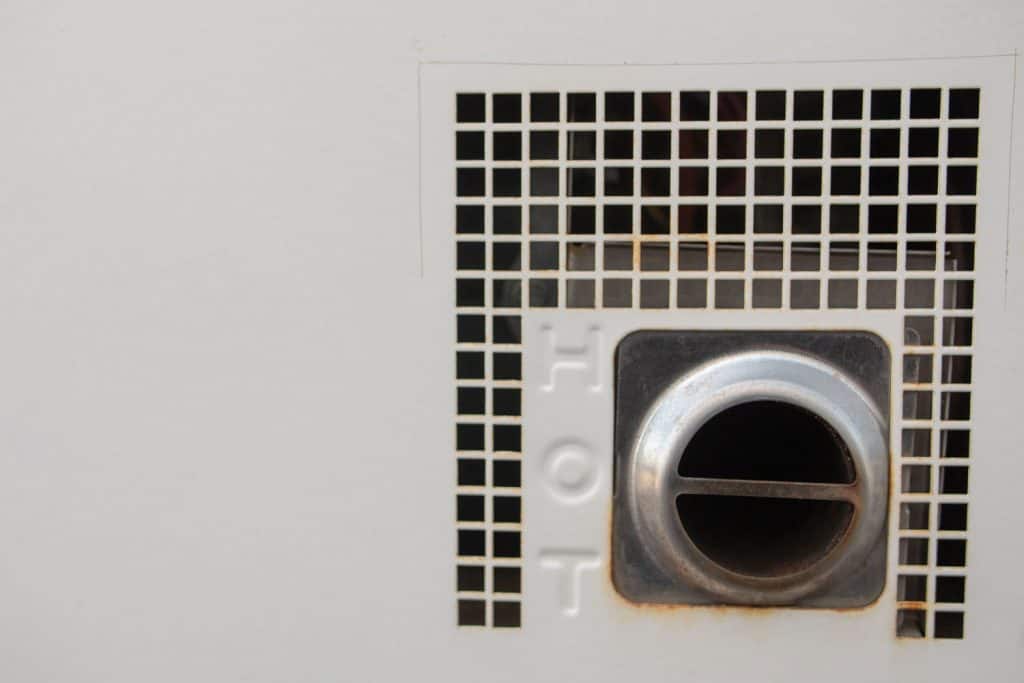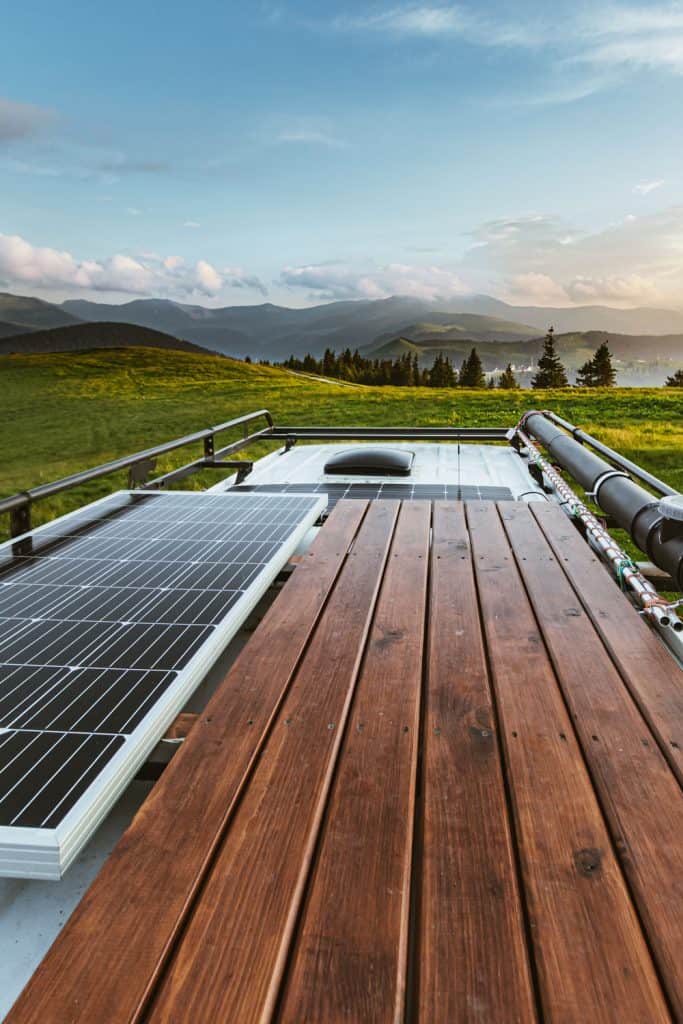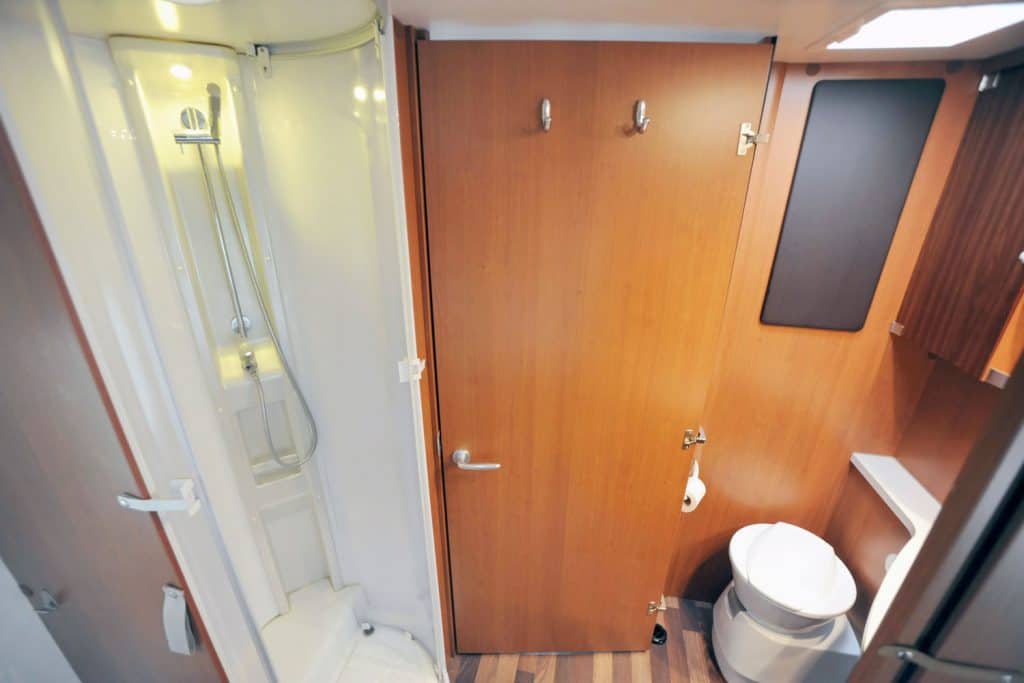Your RV water heater is essential for hot water for showers, hand washing, and dishwashing. But sometimes, if you are in a hurry to take a hot shower, you tend to be impatient. But how long does it take for RV water to get hot? We've researched and consolidated various sources to give you reliable estimates.
The average RV water heater warms water in 20 minutes. But it also depends on how much water is in it. For example, heating a six-gallon tank of water in your RV heater takes 31 minutes, and a 10-gallon tank takes 51 minutes. These estimates are based only on propane as a heat source.
It's possible that heating will be quicker or slower using other types of RV water heaters. As you continue reading, we will discuss the factors and types affecting the heat-up time of an RV water heater. Also, we'll tackle if you could leave your RV water heater on all the time, troubleshoot why your RV water heater won't work, and more.

Factors Affecting Water Heater Warm Time
In heating water using your RV heater, some factors determine how long it takes for RV water to get hot, and these are:
Tank Capacity
Most travel trailers include a six-gallon water heater. This tank will heat up considerably quicker than a 10-gallon since it is 60% smaller. A family of three can use six gallons to shower back-to-back while the hot water tank heats up.
A 10-gallon tank is also available on many trailers and is standard on some fancier travel trailers and 5th wheels. With a larger family or for washing clothes or dishes in an RV, having 40% more water than a six-gallon tank is excellent. A 10-gallon tank of water takes longer to heat.
Heat Type
Though slower than gas, electric heat is stable and may supply affordable hot water. Electricity heats 6.2 gallons per hour on an average RV water heater. It takes around one-gallon of gas to heat a six-gallon water heater using a 2,000-watt generator.
With a six-gallon water heater, anticipate it to heat up in 58 minutes at 6.2 gallons per hour. A 10-gallon tank should be hot in about an hour and a half.
The other one is propane, and it can heat 11.6 gallons each hour. A six-gallon gas water heater warms the water tank at 11.6 gallons per hour or 31 minutes. A 10-gallon tank will heat in 51 minutes.
Many water heaters have both choices and can utilize simultaneously. Using combined sources, you can heat water at 17.8 gallons per hour. A six-gallon water heater will heat at 17.8 gallons per hour and take 20 minutes. A 10-gallon tank might take 33 minutes to heat thoroughly.
What Are the Types of RV Water Heaters?

It is also essential to learn the types of RV water heaters in determining heat-up time and the pros and cons of having them.
Gas
Gas RV water heaters are great for people who like exploring areas without access to water, sewage, or electricity. You can take a hot shower even if you are not connected to the grid. Gas heaters also heat water quicker and recover faster.
But there are certain drawbacks to gas heaters. More propane is required to heat hot water. While it warms water with liquid propane, the internal mechanics need 12 volts, and your hot water supply burns out when your gas runs out.
Electric
In a campsite with shore power, an electric water heater makes sense. It not only saves you money on liquid propane, but it is also relatively easy to operate. Electric water heater benefits include:
- The pilot light will never go out.
- The heating element cycles on and off as needed, so you don't have to turn it off.
- Electricity keeps the water warmer than gas heaters.
However, there are certain disadvantages to consider. With little power, electric water heaters aren't practical. You risk blowing a fuse if you exceed the typical shower power of 30amps.
Gas + Electric
Modern RVs include hybrid water heaters that may work on gas and 120V electricity. While more expensive than gas-only RV water heaters, hybrid heaters are a good alternative if you often stay at campsites with electricity.
Instead, your water heater will utilize the supplied power to keep your water hot. The dual power of electricity and gas warms water faster. Hybrid also enables you to operate both the gas and electric components simultaneously.
Tankless
Tankless RV water heaters are the newest camper water heaters. It prevents water shortages by heating water as it travels through your pipes. In principle, this implies unlimited hot water as long as your camper has water. However, tankless RV water heaters are more costly, sensitive to low water pressure, and challenging to maintain.
Click here to see a tankless RV water heater on Amazon.
Should I Leave My RV Water Heater on All the Time?

You can leave your hot water on all day, but if you're free parking, turn it off since it uses propane and batteries to stay warm. Some never leave water heaters on all day to save electricity and gas. Although you may leave it running, it's better to consider the information below:
Tanks Cannot Be Empty
Your tank running empty while on will surely destroy it. When you restart your RV's water heater, you must also restart the water supply.
Turn Off Before Traveling
Driving with propane is prohibited in certain regions, particularly in tunnels and petrol stations. You should know the hazards and the regulations first in your area. Like propane refrigerators, turn off your propane hot water tank before leaving.
Do RV Water Heaters Have a Thermostat?
A thermostat regulates RV water heaters in electric and LP gas modes. Thus, the heating is only turned on when it's required.
The electric mode thermostat regulates whether or not 120V electricity flows to the electric heating element while the water heater is in electric mode. The gas mode thermostat controls the flow of LP gas to the burner, which is started by the pilot flame.
How Much Water Does an RV Water Heater Hold?
Most water heaters hold 6–10 gallons. However, there are 16-gallon heaters that, when turned on, combine cold and hot water to provide additional warm water.
Water heaters come in many sizes. So, before you shop, measure the sidewall opening. Make a note of the space's dimensions since your RV may not have room for a larger tank to hold more water.
Why Won't My RV Water Heater Work?
Most RVs feature a water heater bypass valve. It prevents RV antifreeze from entering the water heater while winterizing RVs. When winterizing the RV, the bypass valve is left open, allowing water to flow through the pipes but not into the water heater.
If this valve is left open in the spring, the hot water will mix with the cold water supply, resulting in cold or lukewarm water at the faucet or showerhead.
Troubleshooting Your RV Water Heater
There are many possible reasons why your RV water heater won't work correctly. Here are some of these and tips on how to fix them.
Thermocouple
First, check for gas flow and the pilot light if you have no hot water. If the pilot light is on, the thermocouple may be defective. It may not recognize the pilot light and so not ignite the gas. If that is the case, you may require cleaning or replacing the thermocouple.
Click here to see the water heater pilot and thermocouple on Amazon.
Thermostat settings
If you live in a colder climate, your thermostat may be too high. It might happen if you neglect to adjust the thermostat after increasing it to account for the cooler winter temps. It's also possible to require a new thermostat.
Click here to see the thermostat assembly on Amazon.
For an actual demonstration on how to troubleshoot why your RV water heater won't work, watch the video below:
Final Thoughts

The RV water heater is vital to enjoying the RV lifestyle and obtaining a hot shower while traveling. Hopefully, you now know more about RV water heaters, their heat-up time, and how to repair and manage them. If your water heater takes longer to get hot than before and not sure of the cause, it is better to consult an RV professional to fix it.
Before you go, you can check the following articles to learn more about RV water heaters:
RV Water Heater Bursts: What To Do?
How Much Does It Cost To Replace RV Water Heater?



